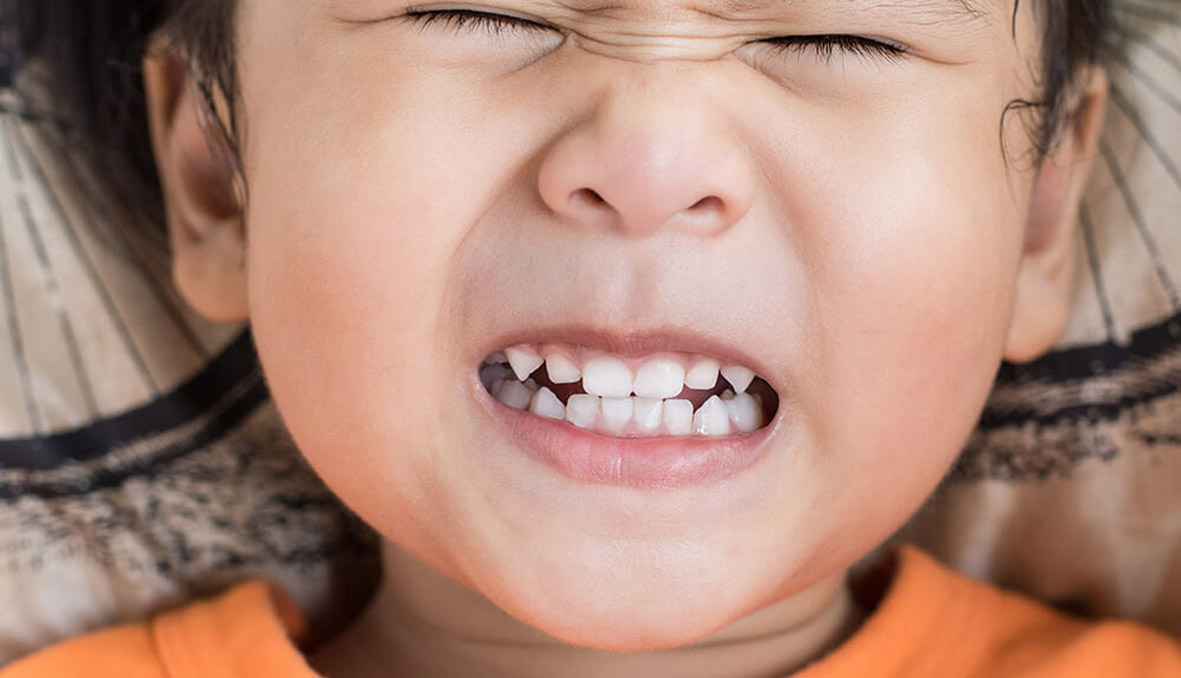Dr Mandeep Kaur
When you look at your sleeping child, you would like to hear the sounds of sweet dreams, easy breathing and perhaps an occasional sigh. But some parents hear the harsher sounds of gnashing and grinding teeth, called bruxism, which is common in kids.
Bruxism is a habitual grinding of teeth consisting of involuntary rhythmic or spasmodic non functional gnashing, grinding or clenching of teeth which may lead to occlusal trauma. Bruxism during daytime is commonly a semi -voluntary ‘clenching’ activity and is also known as ‘Awake or Diurnal Bruxism’. This can be associated with life stress caused by familial responsibility or work pressure. Bruxism during sleep either during daytime or during night is termed as ‘Sleep Bruxism’ and is more common in kids. It can even change the shape of face over time.
Causes of Bruxism
Exact cause is not known. In some cases, kids may grind because the top and bottom teeth aren’t aligned properly. Others do it as a response to pain, such as from an earache or teething. Stress, anxiety, sleep disorders usually nervous tension or anger is another cause. For instance, a child might worry about a test at school or a change in routine. Even arguing with parents and siblings can cause enough stress to prompt teeth grinding or jaw clenching. Having personalities like hyperactive, aggressive or competitive can increase the risk of bruxism. Celebral palsy, dementia, Gerd, night terrors and over consumption of caffeine/ sugar may also cause this habit.
Effects of Bruxism
Although it is not a life-threatening disorder, but can influence the quality of human life, especially through dental problems, such as tooth wear, chip teeth, increased tooth sensitivity, frequent fractures of dental restorations and pain in the oro-facial region, jaw problems, indentations on the tongue. Most kids who grind, however, don’t have TMJ problems unless their grinding and clenching happen a lot. It can also cause dull headaches on waking or earaches and ear ringing. Usually it’s more bothersome to other family members because of the grinding sound.
How to Diagnose
Lots of kids who grind their teeth aren’t even aware of it, so it’s often siblings or parents who identify the problem.
Some signs to watch for:
* Grinding noises when your child is sleeping
* Complaints of a sore jaw or face after waking up in the morning
* Pain with chewing
If you think your child is grinding his teeth, visit the dentist, who will examine the teeth for chipped enamel and unusual wear and tear, and spray air and water on the teeth to check for unusual sensitivity.
If damage is found, the dentist may ask your child a few questions, such as:
* How do you feel before bed?
* Are you worried about anything at home or school?
* Are you angry with someone?
* What do you do before bed?
The exam will help the dentist see whether the cause is anatomical (misaligned teeth) or psychological (stress), and come up with an effective treatment plan.
Helping Kids With Bruxism
* Most kids outgrow bruxism, but a combination of parental observation and dental visits can help keep the problem in check until they do.
* Use of night or mouthguards is the easiest way to work on your night grinding habit.
* Counter the stress by taking a warm bath or shower, listening to a few minutes of soothing music, or reading a book, meditation, exercising.
* Consider alternative methods like acupressure, acupuncture, facial massages and other holistic practices.
* Massaging your lower jaw and surrounding areas can help relieve tension and stress.
* Eliminate sugar, caffeine , alcohol particularly before bed.
* If your child still has trouble sleeping or is acting differently than usual, your dentist or doctor may suggest further evaluation. This can help find the cause of the stress and a proper course of treatment.
(The author is Assistant Professor Dept of Oral Pathology & Microbiology)
Trending Now
E-Paper


